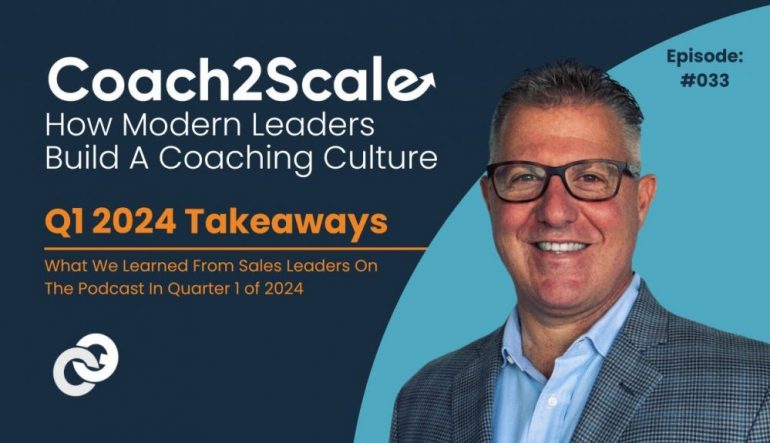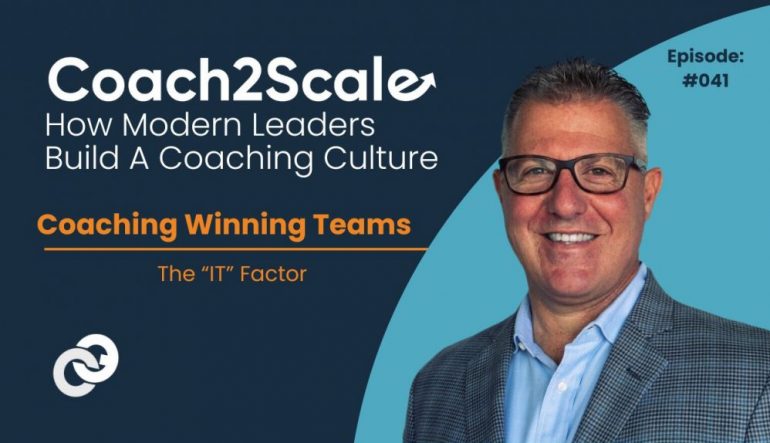For a head of sales, driving revenue growth and ensuring the organization’s financial success is simply the culmination of a stressful, multi-faceted, dynamic effort. They constantly need to balance opposing demands, much like a chess master: toggling between the strategic and tactical, developing internal capabilities vs. having an external awareness and knowledge, seeing the big picture vs. understanding the smaller details, developing a long-term plan vs. delivering on the needs of the present. These demands all play out in what we consider to be the five most important attributes of the Modern CRO.
1. Deep Client Understanding
In old WW2 movies there always seemed to be two types of Generals, those that remained in the rear with the gear – moving pieces around on a map board, and those Generals that led from the front. A modern CRO leads from the front. They go beyond surface-level interactions and make it a priority to deeply understand client’s perception and experience with their company from start to finish. They observe and actively listen, seeking to truly comprehend what’s happening beyond just what is rolled up to them in a report or dashboard. By engaging with internal sales teams and involving themselves in the entire sales process as keen observers, CROs gain comprehensive insights into the client’s perspective, impressions, friction points, what they need and what they want. A modern CRO puts ego aside and understands they are there to observe and support, not to be the “closer.” What can this look like? Habitualizing things like attending customer discovery calls, demos, kick-off calls, quarterly business reviews and renewal calls. This deep understanding from end to end allows them to help their teams tweak their internal process and approach to better align with how clients want to be treated. They can leverage their business acumen and experience to help tailor their internal motion that optimizes the client interaction and their team’s time. One behavior we’ve seen in top CRO’s is building in 15-20 minutes after their observations sessions to debrief with their internal team, before rushing off to their next meeting.
2. Embracing Channel and Indirect Opportunities
Recognizing that internal resources will always have limitations (teams will always want more employees, resources and funding), the modern CRO embraces channel and indirect opportunities to create a “force multiplier” effect. They view these additional resources as extensions of the company, seamlessly integrating them into the overall strategy. By leveraging external partnerships and resources, the CRO expands the organization’s reach and maximizes revenue potential. It expands the lead pipeline from Marketing Qualified Leads (MQLs) and Sales Qualified Leads (SQLs) to include Partner Qualified Leads (PQLs) – with limited direct cost (music to a CROs ears). This, however, is an investment that must be nurtured, prioritized and constantly optimized for maximum and mutual benefit. If done right, clients benefit, not just both partners. The modern CRO is interested in ensuring the same rigor is applied here as in direct sales including things like establishing an Ideal Partner Profile, a rigorous process to qualify or disqualify potential partners, a plan to enable partners, tools to facilitate the process, capture KPI’s and above all else, a repeatable cookbook that gives confidence that their Channel Leaders can operationalize and monetize the channel in a consistent way. Otherwise, it’s a waste of everyone’s time on “paper partnerships.”
3. Balancing Informative Data with Experience and Gut
Modern CROs understand the importance of data-driven decision-making while also acknowledging the value of experience and intuition. They rigorously review data to gain insights into the business and processes. But they also need to understand the data well enough to see potential red flags on the horizon vs. current or temporary issues. Looking beyond internal metrics and considering macro trends is also critical to a comprehensive understanding of the market landscape. Taking the time to ensure the output from Rev Ops is signal, not noise, is key in the early days of a CRO’s tenure.
The data isn’t everything, though. Exceptional CROs leverage the whole of their professional experience strategically, building on those lessons learned to inform their current decisions. Finally, CROs occasionally have to know when to trust their gut instincts – and it’s okay to acknowledge that. They’ve attained their position thanks to skills, knowledge, and some healthy intuition. One very capable CRO we know recently bucked the trend and forced his people back to working in the office (with great results) only to change to a hybrid policy when his instincts, and a survey he conducted, told him he had pushed too hard.
4. Cultivating a Culture of Accountability
A modern CRO creates a culture of accountability within their organization, starting with themselves. They reward high-performing employees, fostering an environment where individuals are recognized for their achievements. Simultaneously, they swiftly address employee issues where there’s not a good fit, ensuring that the team remains aligned and motivated, and problems are addressed quickly and effectively. By promoting a culture where mistakes are viewed as opportunities for growth and learning, the CRO encourages continuous improvement and innovation. This applies the CRO as much as any other employee – CROs need to look through glass when assigning credit and praise, and look in the mirror when assigning blame. There are many opportunities to create this culture. One way to drive accountability is through humility. The next QBR can serve as a great opportunity to start. A CRO can wrap up by asking his/her team to give one piece of constructive feedback after the meeting. Imagine that after a QBR the CRO asks their direct reports three questions: 1) What is one thing you learned from our time together? 2) What are you going to put into practice going forward? 3) What could I do better to maximize our time together next QBR? The signal is sent that QBR’s are about both accountability and learning.
5. Maniacal Focus on Personnel Development
A modern CRO understands the critical role of personnel development in driving revenue growth. They integrate learning and development into the roles and responsibilities of their team members. Leading by example, they continually strive for personal improvement, demonstrating the behavior they expect from others. The CRO highlights internal and external experts, fostering knowledge sharing and collaboration. Moreover, they prioritize the “upstream” process of hiring and onboarding to ensure the quantity and quality of employees needed to sustain growth. This includes ensuring every member of the interview process has in-depth training on how to properly ‘qualify’ candidates. Hereto they use data to understand key metrics that indicate if their FLM is continuing to build a good pipeline of candidates, whether or not they’ve hired ‘poseurs’ or real performers, if their frontline managers are taking ownership of their rep’s onboarding or if they ‘outsource’ it to Sales Enablement. Finally, they prioritize coaching and codify it into daily and weekly processes. Modern CROs know that by adopting a rigorous, data-driven, and hands-on approach to hiring and coaching, they are ensuring their managers are prioritizing the development of sales people who themselves manage the sales process. This is the key to scalable, predictable growth.
What isn’t an attribute of a Modern CRO?
For all that a Modern CRO needs to be successful, there’s one thing that will sink a CRO faster than anything else: a short-term focus. All of the attributes above take time, energy and resources to develop and implement. CROs need to invest early and give their strategies, programs and policies time to take root and grow, developing their organization into one that thrives.
CoachEm helps modern CROs empower their managers to master the people part of the revenue equation. Improving leaders’ ability to hire, ramp, develop and promote (up or out) is what ultimately will deliver more deals, bigger deals, faster deals and loyal customers.






